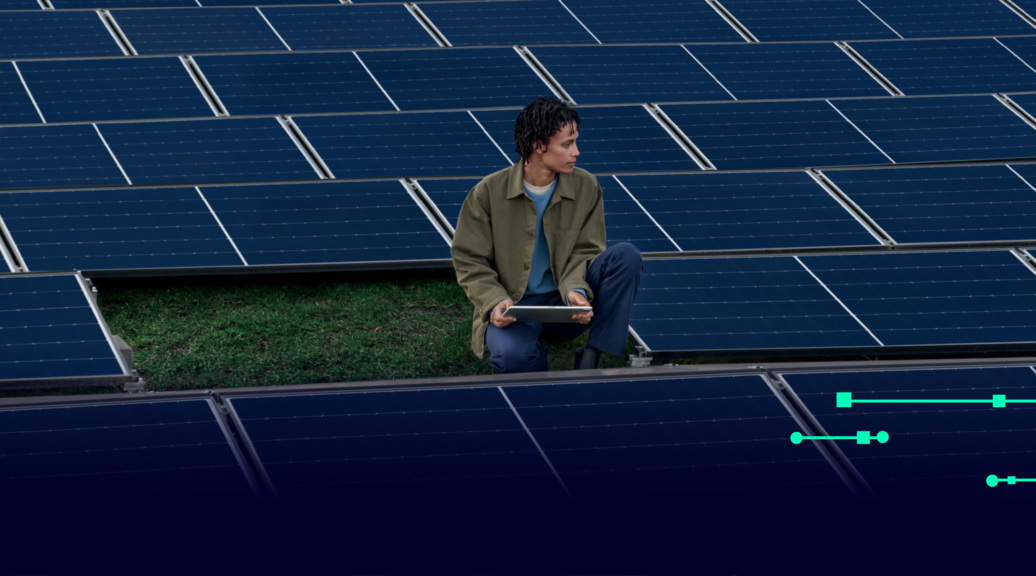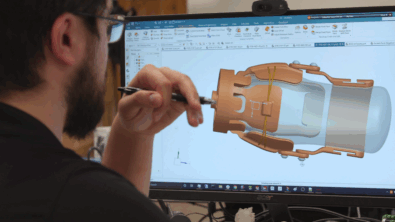Industrial AI in the transition to sustainability

The race against climate change is on. As the target year of 2030 set by the Paris Climate Accord inches closer and closer, companies and organizations across industries are seeking rapidly decarbonize and avert the effects of human-induced environmental impacts. Doing so requires large-scale, efficient, and effective action.
Digitalization has been a critical tool in enabling this action. By digitalizing their processes and tools, organizations have been able to accelerate their sustainability goals in key impact areas, such as increasing energy efficiency, promoting circularity across the value chain, and ensuring equitable access to essential resources. Yet the full scale and complexity of the transition to sustainability will still require a lot of work, and with 2030 fast approaching, the need to do it quickly is all the more prudent.
Artificial intelligence (AI) can be the next step in ensuring such a rapid transition is successful. A report by Reuters in cooperation with Siemens describes how when applied in an industrial capacity, AI’s ability to process enormous amounts of data at breakneck speeds can help reduce the complexity and better manage large-scale action. In this way, AI can help the transition to sustainability outpace climate change.
Sorting out complexity
The complexity of sustainable transitions comes from the fact that sustainability touches nearly every aspect of an organization’s processes. From the energy consumed by its facilities to the sustainability impact of the products it designs to the supply chains that provide the materials for those products, everything effects the environment in some way. Additionally, one area of an organization may influence the effects of another. The solution then, is not to target the sustainability of each area in isolation, but rather together as an interconnected system.
Of course, managing all that interconnected data from a wide variety of systems can be burdensome for human engineers, which is what makes industrial AI a promising tool. A trained industrial AI can perform sustainability impact assessments and emissions tracking for both operations and products. Specific use cases include intelligent cooling management in data centers to optimize energy consumption, providing supply chain insights to lower emissions, and identify environmentally conscious design decisions, just to name a few. AI can be applied anywhere, enabling a holistic solution to carrying out a sustainable transition.
What is also great about industrial AI is how it could be integrated with other digital technologies and tools, enhancing their value. The comprehensive digital twin, IoT, 3D printing, and other such tools have already been significant benefits to industry. Infusing them with AI grants them smarter and faster decision-making capabilities, which in turn makes typically complex, time-consuming endeavors easier and less costly to do, delivering greater return-on-investment.
Addressing AI’s energy concerns
While these benefits are attractive, the concern over AI’s own computer processor power usage must also be addressed. As AI becomes applied to more and more use cases, the amount of energy an organization needs to consumer is bound to increase. Thus, there are some who are concerned that using AI to accelerate sustainable transitions may undermine its own endeavors with the energy it needs to operate.
Avoiding this problem will require a holistic approach that assesses where AI can be applied strategically to outweigh the resources to run it, but there is also something to be said about AI optimizing its own sustainability impact. As mentioned previously, one of industrial AI’s applications can be the intelligent management for its own data center’s cooling systems. AI can improve the sustainability impact of anywhere in the value chain, and that includes its own operating processes. Nevertheless, any AI application must be used strategically in a way that results in a net positive when it comes to the energy used to run it.
Building a green future with AI
AI has seen remarkable growth in recent years, and its full capabilities are still being explored. Yet its ability to process and analyze data at great speeds and scale already has the potential to accelerate organizations’ transition to sustainability in time to meet target goals. While caution is needed to ensure AI does not counteract such initiatives, there is good reason to be excited about its burgeoning role in making industry more environmentally friendly.
Be sure to check out the report by Reuters and Siemens for more information on AI’s potential role in the race against climate change.
Siemens Digital Industries Software helps organizations of all sizes digitally transform using software, hardware and services from the Siemens Xcelerator business platform. Siemens’ software and the comprehensive digital twin enable companies to optimize their design, engineering and manufacturing processes to turn today’s ideas into the sustainable products of the future. From chips to entire systems, from product to process, across all industries. Siemens Digital Industries Software – Accelerating transformation.


